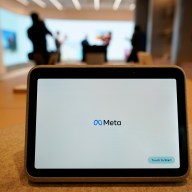Though Lauren Groff’s captivating new novel, “Arcadia,” is set in an imploding commune in upstate New York during the 1970s, the work feels modern and relevant. “This book was a direct over-reaction to the passivity and cynicism I felt in the world when I began it four years ago,” she says. Groff answered a few questions for us about the beauty of upstate New York, the impact of motherhood on her writing and the idealism of the ’60s.
You’ve set two novels in upstate New York, where you were raised. What is it about that part of the state that makes it a great place to set a book?
I love upstate New York, with its chilly lakes and hills and pensive old cows. I miss it very much, and I think I return to it because I like the feeling of living there for a few hours a day. Also, because my childhood was set there, it feels like a good place for books about wonder and childhood.
This book is set initially from the perspective of Bit, a young member of the commune. You have two young boys yourself. How much has motherhood impacted your writing?
Fiction is the province of empathy. Anything that expands your empathy and makes you feel more for other people will make you a stronger writer of fiction. I have two boys and, with the arrival of each, it felt as if I’d grown an extra heart. There’s that much more potential for pain, but I felt three times stronger about everything than I did before. The main character of Bit is directly derived from my big boy, Beckett, with whom I was pregnant when I tried to glom onto the idea of hope and idealism.
You started writing this long before the emergence of Occupy Wall Street. Do you feel like there’s a kinship between the idealism of the ’60s and ’70s and this current movement?
I hope so. … I want so badly for the Occupy movement to make huge sweeping changes, though the ones that it will probably make will be more subtle if just as far-reaching. I feel a bit external to both historical eras –?I wasn’t born in the ’60s, and I was crazed with this book and my babies while writing and wasn’t as involved in Occupy as I might have wanted to be — and that puts me in the category of avid watcher of both eras.
















